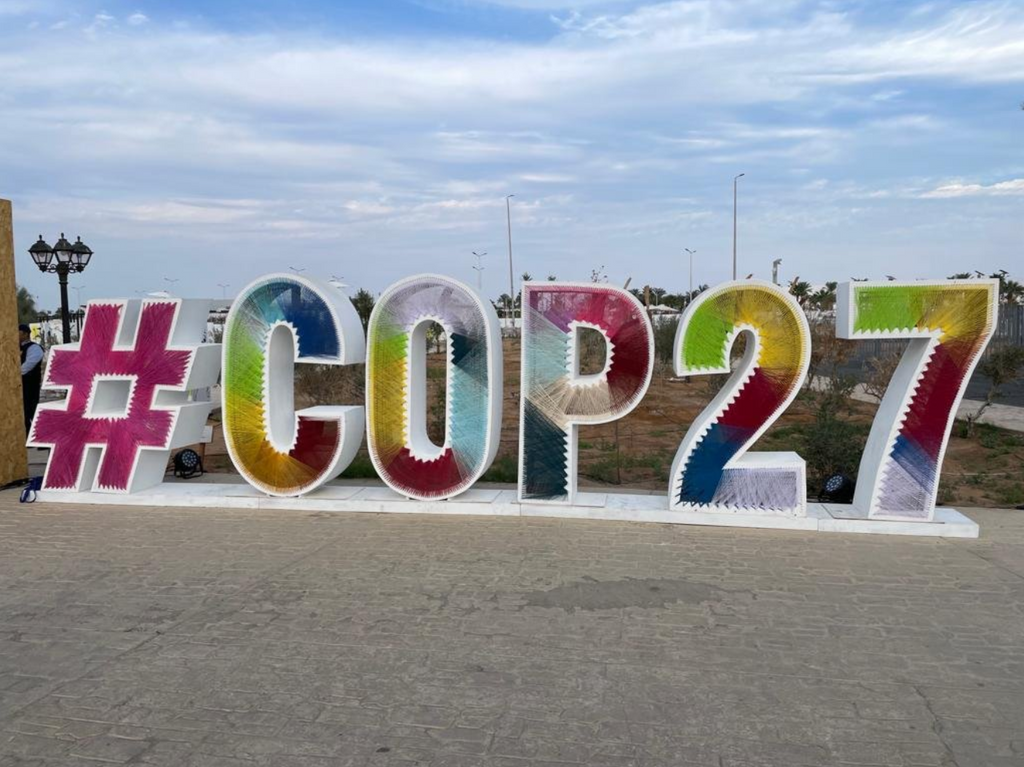COP27 Unpacked: Interview with the CEO of Delphis Eco by Ellie Meredith

Delphis Eco is on a mission to revolutionise the cleaning industry with their unique range of plant-based products. They are committed to minimising waste, pollution and natural resource depletion at every stage. Delphis Eco as a B Corp and Royal Warrant holder is also making a conscious effort to spread awareness about climate change and how if we all change our purchasing habits, we can make a difference. Delphis exists as part of a circular economy, so they aim to be 'green at every step", from manufacturing their products to their afterlife - which I truly admire. Back in October, I spent a few days doing work experience at Delphis, and I relished the opportunity to work with such a cool bunch of people who care as deeply about the planet as I do.
So, for those reading this who don't know much about your career to date, can you share a little about your background?
Hi, I am Mark, the CEO and founder of Delphis Eco, an eco-friendly, plant-based cleaning product company. I began my career working in the city as a banker, and I woke up one day and decided that I needed to make some changes. So, in 2007, I started up Delphis Eco, and we are now making waves in the sustainability space.
Why did you decide to attend COP?
For all the backlash and boycotting that surrounded COP, I think it's essential to show up, be in the room and have conversations that need to be had. There were 35,000 people at COP - made up of founders of enterprises, delegates, government etc. COP is a very powerful convener for people who care deeply about our planet, and there is a space at COP for those
voices to be heard.
What was your experience of Egypt hosting?
They did a brilliant job, and I would be proud to be an Egyptian. The venue was a very different place at night as the delegates left and the locals flooded in. They came to absorb what was happening, hoping to educate themselves about the emergency.
One of the distinct differences between the COPs was the levels of commitment to a shared goal and ambition. COP26 was a space for collaboration, progress and innovation, and that was so refreshing. Still, this time around, I left feeling frustrated by the finance sector as it felt like they were just reeling off excuses as to why they aren't investing in green innovation.
How did COP26 compare to COP27?
Glasgow was amazing. I missed the conversations I had on the train ride to the venue. I will never forget helping a young activist with her grandmother paint their sign en route to COP. COP27 was branded as the action COP, and retrospectively there was undoubtedly a sense that people were committed to taking action. Every country has been hit by climate change in the last year. There are record temperatures, food insecurity, and war, and so everyone is scared and alerted to the threats that the climate emergency presents.
What has been the most frustrating/ hard-hitting thing coming out of COP?
Climate change has a 30-year lag, and since then, we have had more carbon in the atmosphere than we have in the last 150 years - this is an emergency and should be treated as one. This is about climate resilience. But like I said, companies are fearful of being accused of greenwashing so they are failing to deploy real cash - especially following the reception Coca-Cola faced after they sponsored COP.
What were some of the most inspirational conversations you had at COP?
At COP, I met the founders of Fortescue, the fourth-largest mining company in the world based in Australia. They are on track to become completely carbon-neutral by 2030 making them a trailblazer in the industry. They have also brought the battery company founded by Williams F1 in a bid to decarbonise their fleet of vehicles. As part of this project, they are supporting Williams in building their prototype battery that will hopefully power an electric train to cut the use of diesel and heavy mining practices. Better still, their senior leadership team is headed up by 25% of women, and their workforce is 15% aboriginal to ensure that everyone has a voice.
Did you feel that youngsters got a seat at the table?
Young people had more of a presence at COP26, but because it was in Glasgow, it was easier to get to, and flights to Egypt are more expensive. But I did feel that the young people at COP were so impressive, but they were not as included in the conversation as the adults, especially as they were shepherded into the Youth Pavilion. Their voices were not amplified, and they almost had to ask permission to express their ideas. The COP delegates should represent and be accountable to the populous, but that wasn't the case. The delegates are only there for the taxpayer's benefit, as ultimately, we, in our taxes, are paying for their salaries.
What legal changes need to be implemented to make the transition into a greener future easier?
I fundamentally believe that if you are a CEO of a listed company, you must leave after ten years. If you are a non-executive director, you must go after six years -otherwise, you become a bed blocker. This would open up spaces for a younger, more diverse, innovative and efficient workforce.
Do you feel optimistic about the future of the planet?
I know that the people on the streets have got this, and young people like you give me hope that we can solve this.
The countdown to COP28 begins…
Check out more of Ellie's blogs on sustainability on her website and Linkedin page.

Leave a comment